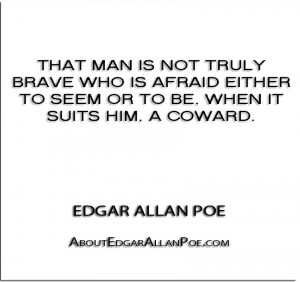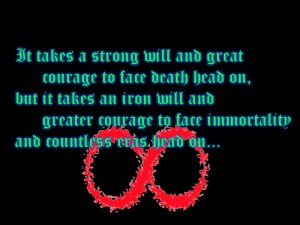Much attention is now being paid to the heights humans can achieve and the best of human nature. This is indeed a welcome and much-needed change, and heroism is in many ways leading the fold in this new wave of thinking. The hero is overwhelmingly seen as a symbol of triumph, overcoming the odds against him or her for some victorious end result. They defeat evil and order is restored in the world.
But reality is not as clear-cut. The burden and scars the hero can be left with as a result of what they have learnt and the trials they have undergone may leave them dispirited, calling for even greater amounts of courage to deal with the outcome of the journey. At other times there is no clear triumph as the journey might mean having to live with lifelong pain, as in the case of post-traumatic stress disorder, injuries or brain damage.
Psychologists Zeno Franco and Philip Zimbardo (2006, p. 31) speak of the “subtleties” of heroism that have been lost. The common conception of heroism, which is more of an exaggerated, overemphasised ideal, is juxtaposed against ‘ordinary’ reality. An ordinary wo/man who as a result of a single noble act or acts of bravery (usually in sequence) rises to the status of hero or superhuman, sealed into this realm therein. As Franco and Zimbardo (2006) suggest we are all, under the right conditions, capable of both evil (as demonstrated in the Stanford Prison experiment) and heroism. Arguably it is most accurate to describe the life of a human as a combination of both, whether they are conscious of it or not.
Daily acts of reaching outside our comfort zone can be regarded as heroic – we are creatures of habit and comfort. But we are also curious creatures, with an innate thirst for imagining the impossible. An act of doing something that feels uncomfortable, however small, taps into this inborn adventurous spirit, bringing us closer to our innate heroic nature. It is these small subtleties that are indeed becoming lost in all the celebratory fan fare of ‘superheroes’ and celebrity culture. True heroism is likely  to be a quiet, subtle thing, like a whisper in the dark that you can barely sense. But it is there. So let us begin to celebrate the small, the subtle, the unseen. For it is there that our true treasure lies.
to be a quiet, subtle thing, like a whisper in the dark that you can barely sense. But it is there. So let us begin to celebrate the small, the subtle, the unseen. For it is there that our true treasure lies.
Introducing the concept of the “banality of heroism” proposed by Franco and Zimbardo (2006) almost a decade ago, by no means denigrates the centrality of heroism in day to day life. If anything it escalates it, paving the way for a system where everyone is a hero. Acknowledging the value of heroism means acknowledging the value of journey and story, both our own and of others. We must begin to respect story as science, as episteme (from its Ancient Greek derivation), or as deep knowing – and knowledge as a journey itself – and dispel one-dimensional views of individuals, groups and the cosmos, recognising them for the rich tapestries that they are.
I believe that this type of science can provide answers to the enduring presence of heroism, which is arguably one of the few constants of not only the history of humans, but the universe itself. I believe we will also constantly fail to fully comprehend heroism’s function if we continue to look at it as a ‘higher’ ‘superior’ state of humanity (and indeed by not looking outside humanity), but rather as something innate and firmly embedded within life and physiology itself. I believe that rather than thinking of heroism as something ‘out there’, a magical quality associated with a ‘mythical’ past that left us, it has always been there. We just need to open our eyes to it in new ways. In describing this work as merely an initial attempt, Franco and Zimbardo (2006, p. 33) themselves emphasise that “at best, it allows us to propose a few speculations that warrant further investigation”.
Behind every crisis, there is a hero. Behind every life that shatters, there is the opportunity to put it back together. Heroism is a gift bestowed to all of us, which, if left unrealised, becomes a curse and the root of our Pandora’s box. Sometimes the cost is simply too high – so why be heroic? Because as the fictional character of Peter Parker says in the end of Spider-Man 3, “Whatever comes our way, whatever battle we have raging inside us, we always have a choice. … It’s the choices that make us who we are, and we could always choose to do what’s right.” And most of the time it is not about good or bad choices, but choices that were simply not good enough. Those are the ones that make the most impact in a world where heroism is banal.
– – – – – – –
Note: This is a short version of the essay “The problem of heroism” appearing in the online commentary forum Heroism Today.
References
Franco, Z. E., & Zimbardo, P. G. (2006). The banality of heroism. Greater Good, 3, 30-35.
Olivia Efthimiou is a transdisciplinary researcher at Murdoch University, Perth and Associate Researcher at the Australian National Academy of Screen and Sound Research Centre. She is the website creator and administrator of Heroism Science – Promoting the Transdisciplinary Study of Heroism in the 21st Century and lead Editor of International Advances in Heroism Science.
– – – – – – – – – – – – – –

There is much truth to this. The burden and scars– the sacrifices– of heroism are what make heroism heroic. As the saying goes, if it was easy, anyone could do it. That’s the choice: Whether or not to pay the price. That price may be anything from a black eye to haunted dreams to your very life. There are, as with everything, levels. The so-called banality of everyday heroism should indeed be recognized, but I fear that “a system where everyone is a hero” will lead to a kind of hipster definition of hero that dilutes and denigrates the inspiration of those who truly excel– and have truly sacrificed. Recognizing a higher standard raises the bar for everyone, which can only be a good thing for posterity.